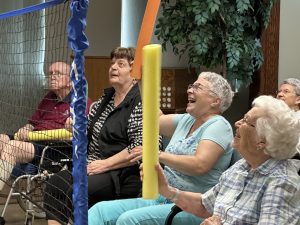 Previously, I asked readers to share what worked to get an aging person into a safer situation when they are unwilling.
Previously, I asked readers to share what worked to get an aging person into a safer situation when they are unwilling.
Perhaps your parents have said: “Promise me you will never make me leave this house.”
What an emotionally charged request.
Your parents’ feelings are valid, don’t dismiss them. Use this as an opportunity to discuss your desire for their continued safety. Reassure them that you care about their well-being and will always do your best to respect their request.
A reader, Carol, suggested to her mom that they look at potential future living arrangements so Carol would know what her mom liked. This approach opened up discussion with her mother.
Another reader, Nancy, said that their best resource was her dad’s long-time doctor. The doctor gave her father an assignment to visit and rank potential living places should they be needed someday, which gave her dad a sense of control and led to an easier move.
To get insight on how to make a smooth transition, I turned to Becky Reichelt, President/CEO and Stephanie Lewis, Memory Care Coordinator, at Valley VNA Senior Care. Reichelt is also the board chair of the Alzheimer’s Association-Wisconsin Chapter.
They recommended touring potential communities in advance to create familiarity and an encouraging atmosphere. Use positive language and make the visit part of a plan, such as combining it with other activities like visiting the foot clinic at the community and having lunch there.
I asked Reichelt and Lewis how to deal with moving someone into memory-care when they are unwilling or forgot that they agreed to it just yesterday.
They recommend that you talk with the staff in advance. Be sure they know what is going on and allow them to help you through the process.
Lewis emphasized that you never want to lie to someone who is living with dementia, but it is important to recognize where they are in their thinking. She suggested taking them to their favorite restaurant and then to the assisted living home where the room has already been set up by the family. Because the staff is prepared, they can use familiar items and activities to make the person feel more at home.
I shared that some folks had advised that you shouldn’t come back for a week: let them get used to it. Reichelt adamantly disagreed. “That is very harsh for the person living with dementia because they’ve lost their homes, they’ve lost their possessions, they’ve lost their vehicle, and now they don’t even have those familiar faces that they love and need support from.”
Lewis and Reichelt talked about how important it is to duplicate the home atmosphere. Take the recliner where Dad spends all his time. Bring the end table that is normally next to it, along with the table lamp, the reading glasses, and family pictures. Set the room up with items that are cozy.
Begin the process as early as possible, be reassuring and respectful, get help from professionals, and create surroundings that are familiar, making it home.
Jean Long Manteufel writes a column each month about life changes associated with aging. Send your questions to Jean@TransitionsWithJean.com or call 920-585-7769.
